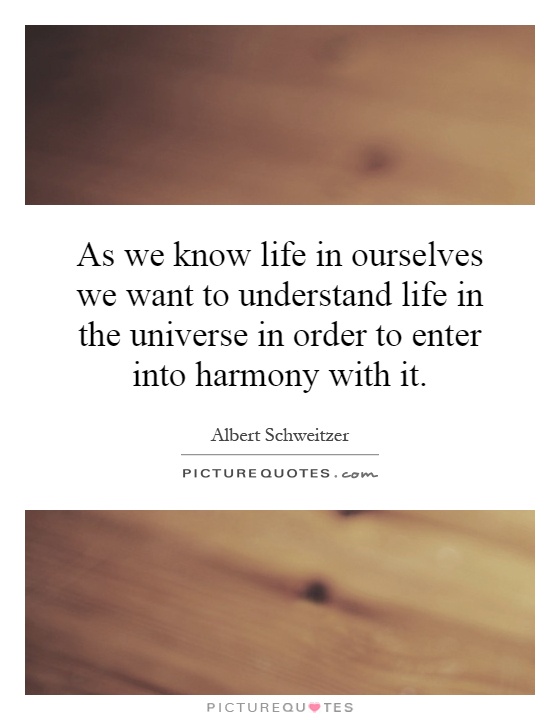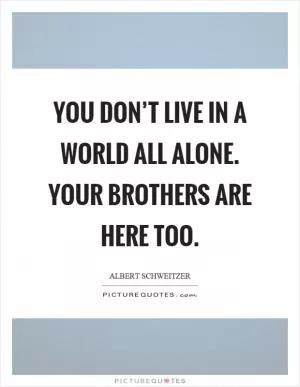As we know life in ourselves we want to understand life in the universe in order to enter into harmony with it

As we know life in ourselves we want to understand life in the universe in order to enter into harmony with it
Albert Schweitzer, a renowned theologian, philosopher, and physician, believed in the interconnectedness of all life forms and the importance of understanding our place in the universe in order to achieve harmony. His philosophy centered around the idea that by gaining a deeper understanding of ourselves and the world around us, we can live more purposeful and fulfilling lives.Schweitzer's belief in the unity of all life stemmed from his reverence for the natural world and his deep respect for the interconnectedness of all living beings. He saw the universe as a vast and intricate web of relationships, where every action and every being had a ripple effect on the whole. For Schweitzer, understanding life in ourselves was the key to understanding life in the universe, as our individual experiences and actions were reflections of the larger cosmic order.
In his famous work, "The Philosophy of Civilization," Schweitzer argued that true harmony could only be achieved by recognizing our interconnectedness with all living beings and by living in accordance with the laws of nature. He believed that by cultivating a sense of empathy and compassion for all creatures, we could transcend our individual egos and connect with the universal spirit that permeated all of existence.
Schweitzer's philosophy was deeply influenced by his Christian faith, which taught him to love and respect all of God's creations. He believed that by living in harmony with the natural world and by treating all beings with kindness and compassion, we could achieve a sense of peace and fulfillment that transcended our individual desires and ambitions.












 Friendship Quotes
Friendship Quotes Love Quotes
Love Quotes Life Quotes
Life Quotes Funny Quotes
Funny Quotes Motivational Quotes
Motivational Quotes Inspirational Quotes
Inspirational Quotes